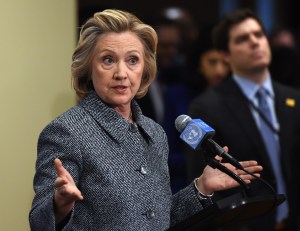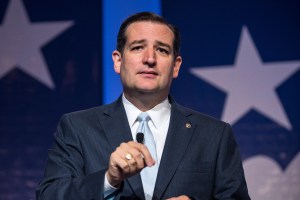
Last week, Republican Sen. Ted Cruz became the first candidate to formally enter the race for the Republican nomination for President. The Republican field is likely to be very crowded, but until recently there were no official candidates. Accordingly, one of the first thing that Cruz’s announcement did was draw attention to the absurdity of the “campaign announcement.”
Today, the one announced candidate for President has a relatively small chance of becoming President, while the candidate with perhaps the greatest chance of winning the White House, Hillary Clinton, continues to insist she has not yet made up her mind. Incidentally, Ms. Clinton was one of the beneficiaries of Senator Cruz’s announcement, as it was part of a busy news week that, as expected, firmly pushed the controversy over her emails out of the news, at least for now.
Mr. Cruz’s announcement came at a time when Wisconsin Governor Scott Walker is emerging from the pack. This meant Mr. Cruz’s opportunity to secure a role as the conservative challenger to Jeb Bush was in danger of being lost to Mr. Walker. For this reason, the junior Senator from Texas had to act quickly to draw some attention to himself and his candidacy.
But the early announcement will do little to change how Mr. Cruz is treated by the media and Republican insiders, who will still lump him behind Mr. Walker and several others who are seeking to win the support of the most conservative primary voters. If Mr. Cruz is able to parlay his announcement into stronger fundraising and some significant endorsements in early primary states like Iowa or New Hampshire, he will be in a different situation, but there is little reason to think that will occur.
Although it is conceivable that Mr. Cruz could have some success in the first few primaries and be one of the final three or four Republican contenders, his combination of extremely conservative politics and grim disposition would make him a disastrous general election candidate. Republicans who do well in general elections generally have a friendly personal style like George W. Bush or more Ronald Reagan. Mr. Cruz is, by all estimates, no Ronald Reagan.
Hillary Clinton, on the other hand, has avoided announcing her candidacy while playing the politics very well. She has accrued all the benefits of an early announcement with regards to political and financial support (and scaring other challengers out of the race) while giving herself some political wiggle room. She has avoided having to take stands on some major issues by reminding us that she is not yet a candidate.

This, of course, is absurd. Although Ms. Clinton frequently alludes to making a decision about running for President, this is not a case of a candidate legitimately wrestling with whether or not to run, like Mario Cuomo’s endless, and often public, rumination on the question in 1988 and 1992. Rather, it is more a reflection of Ms. Clinton’s efforts to see how long she can continue with her Rose Garden strategy.
It is the rare politician who can run a Rose Garden strategy without being an incumbent, but Ms. Clinton has been doing just that. While she often seems awkward on the campaign trail, she nonetheless possesses impressive political skills. Additionally, If Ms. Clinton ultimately decides not to run for President, the political impact will not be that of a strong candidate eschewing a campaign for personal reasons, but of the frontrunner dropping out for no clear reason. Should that occur, the Democratic Party will have to scramble for a candidate in what would suddenly become a wide open race. This is the reality for both Ms. Clinton and her party; and it would be helpful if it were more frequently reported that way.
It is possible that Ms. Clinton’s strategy, particularly if it is successful and ends with her being elected, will create a new precedent. Campaign announcements may become a thing of the past with no real place in a media environment where speculation about possible candidacies, the creation of candidate centered PACs, and active social media presences, begin years before an election.
Lincoln Mitchell is the national political correspondent at the Observer. Follow him on Twitter @LincolnMitchell

